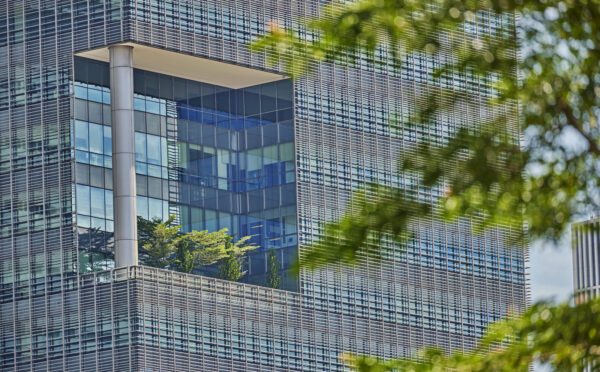In the recent annual budget tabled by the Minister of Finance of Québec (the Minister) on March 27, 2018 (the Budget), changes were announced to An Act respecting the Québec Sales Tax (the QSTA) that will require certain businesses without physical or significant presence in Québec (Non-Resident Suppliers) to register for QST purposes and to collect and remit QST on certain supplies made to consumers in Québec.
Background and rationale
This proposal is targeted primarily at e-commerce, as business conducted over the internet increasingly allows for residents of Québec to acquire property and services from suppliers who operate without having a physical presence or carrying on business in Québec.
Under current law, businesses with no physical presence in the form of a permanent establishment in Québec, who do not carry on business in Québec, are generally not required to be registered for QST and do not collect QST on sales that constitute taxable supply in Québec and that are subject to QST under the QSTA.
In the case of corporeal movable property from outside Canada, the Canada Border Services Agency is empowered to collect QST as part of the customs process; however, despite the arrangement with the Canada Border Services Agency, the Budget indicates that QST is collected on only a fraction of properties brought into Québec from outside of Canada.
In the case of corporeal movable property supplied from within Canada but outside of Québec, and in the case of incorporeal movable property such as downloadable media content, under current law Québec consumers are required to self-assess QST. In reality, the Budget acknowledges that there is very low level of compliance with this requirement.
As a result, the Minister identified two primary negative consequences that the proposed measures seek to address:
- There are significant tax revenue losses due to low rates of compliance by consumers who are required to self-assess QST.
- Suppliers outside Québec are receiving a competitive advantage against Québec businesses, as Québec businesses are required to collect and remit QST on their supplies in Québec.
The Minister estimates that $270 million of QST was unreported in 2017 in respect of online transactions with Non-Resident Suppliers.
The sections below summarize the proposal included in the Budget dealing with the collection of the QST by Non-Resident Suppliers.
Registration and collection requirement
Québec will implement a new registration system for the purposes of the QST. Under this new system, Non-Resident Suppliers whose aggregate consideration received in respect of taxable supply made to persons who may reasonably be considered specified Québec consumers, as further described below, is at least $30,000 over the last 12-month period ending at the end of the previous month will be required to register under a new specified registration system.[1]
Non-Resident Suppliers registered under the specified registration system will be required to collect and remit QST applicable to taxable supplies made in Québec to specified Québec consumers. This collection requirement applies in respect of supplies of incorporeal moveable properties and services made by Non-Resident Suppliers and supplies of corporeal moveable properties but only if they have been made by Non-Resident Suppliers that are located in Canada outside Québec. Albeit registered under this new specified registration system, those Non-Resident Suppliers will not be considered registrants for other purposes within the QST system and will not be able to claim input tax refunds in respect of QST paid on property and services acquired in the course of their commercial activities. Additionally, recipients registered under the general registration system will not be able to claim input tax refunds in respect of QST paid to non-resident suppliers registered under the specified registration system. They will be entitled to obtain a refund of the tax paid to such Non-Resident Suppliers in error, but only from the Non-Resident Suppliers directly.
If a Non-Resident Supplier required to register under the specified registration system meets the existing registrational requirements for optional registration under the general registration system, it may elect to register under the general registration system instead of the specified registration system.
In addition, a Non-Resident Supplier may register under the general system instead of the specified registration system provided that it furnishes and maintains security that is satisfactory to the Minister.
Non-Resident Suppliers registered under the specified registration system will be required to report on a quarterly basis, and remittances will be accepted by electronic payment. The Budget announced that the QSTA will be amended to allow remittances to be made in currency other than Canadian dollars, and that eventually the Minister may prescribe specific currencies for the purposes of remitting QST.
No presumption of supply outside Québec
The QSTA will be amended so that certain presumptions that a supply is made outside Québec will not apply in respect of supplies of property or services by Non-Resident Suppliers made to specified Québec consumers, in accordance with these legislative changes referred to above.
Specified Québec consumer
A specified Québec consumer will be a person not registered for QST whose usual place of residence is in Québec.
Non-Resident Suppliers registered under the specified registration system will be required to verify a person’s usual place of residence by obtaining two non-contradictory pieces of information, which may include the person’s billing or personal address, geolocation of the device used by the person, payment-related bank information, or information from a SIM card or the location of the person’s landline telephone.
Given that Non-Resident Suppliers are required to collect the QST from specified Québec consumers and that persons registered for QST purposes will not be specified Québec consumers but can only claim a refund of tax paid in error from the Non-Resident Suppliers, there might be a tension between the Non-Resident Suppliers and those consumers.
The means of identifying specified Québec consumers outlined in the Budget would seem to capture all persons physically located in Québec, regardless of QST registration status. Non-Resident Suppliers might have additional compliance requirements in dealing with refund requests filed by persons who are registered for QST purposes.
Digital property and services distribution platforms
Digital platforms that provide services to a Non-Resident Supplier enabling them to make supplies of incorporeal movable property or services to specified Québec consumers will also be subject to the registration requirements imposed on Non-Resident Suppliers, where the platform controls the key elements of transactions.
Internet service providers providing only transfer service, services providing access to a payment system, and advertising services that inform and link customers to suppliers’ websites will not be considered to control the key elements of transactions and will not be subject to the registration requirement imposed on digital platforms.
The same obligations imposed on Non-Resident Suppliers will be imposed on digital platforms that are registered under the specified registration program. A digital platform that is already registered for QST under the general program will not be required to register under the specified registration program, but will be required to collect and remit QST in respect of taxable supply the digital platform allows by Non-Resident Suppliers to specified Québec consumers.
Effective date and grace period
These measures will come into effect as of January 1, 2019 in respect of Non-Resident Suppliers outside Canada, and digital platforms enabling such suppliers to make supplies in Québec to specified Québec consumers, and as of September 1, 2019 in respect of Non-Resident Suppliers located in Canada outside Québec, and digital platforms enabling such suppliers to make supplies in Québec to specified Québec consumers.
During the first 12 months following the date of application, Non-Resident Suppliers who show that they have taken reasonable measures to satisfy their obligations but are unable to meet them will not be subject to penalties, and Revenu Québec will provide assistance with compliance.
Following this 12-month period, existing penalties under tax legislation will be imposed in respect of non-compliance.
Penalties for misrepresentation by Québec consumers
Recipients of property or services from a Non-Resident Supplier registered under the specified registration program who claim not to be specified Québec consumers by providing false information to avoid the QST will be liable to a penalty for each such transaction, at a minimum of 100$ or 50% of the QST payable on the transaction.
The Budget did not include specific technical proposals in respect of these measures.
Accordingly, technical analysis of the proposed amendments will have to be postponed until legislative proposals are released by the Québec government. Given that those measures are intended to apply in 2019, it would be reasonably expected that at least draft legislation will be released before these measures become effective. However, a Québec provincial election is scheduled for this coming fall and may delay the release of legislative amendments. The Budget indicated that legislative amendments will be quickly tabled to the National Assembly.
For questions relating to the 2018 Québec Budget, please contact any of the following members of the Osler tax team:
Alain Fournier [email protected] 514.904.5390
Alan Kenigsberg [email protected] 416.862.6659
Marlene Legare [email protected] 416.862.4603
Marc Roy [email protected] 514.904.5775
D’Arcy Schieman [email protected] 416.862.5977
[1] As further detailed herein, a specified Québec consumer excludes a person that is registered for QST purposes.

